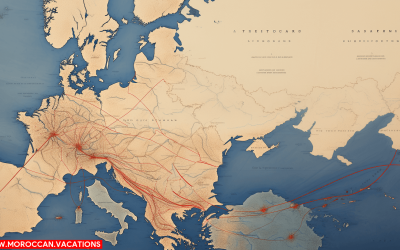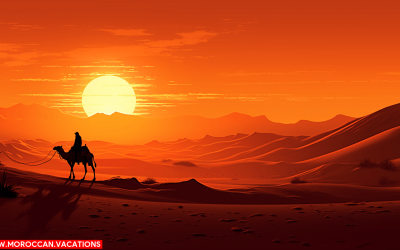Understanding Moroccan Time
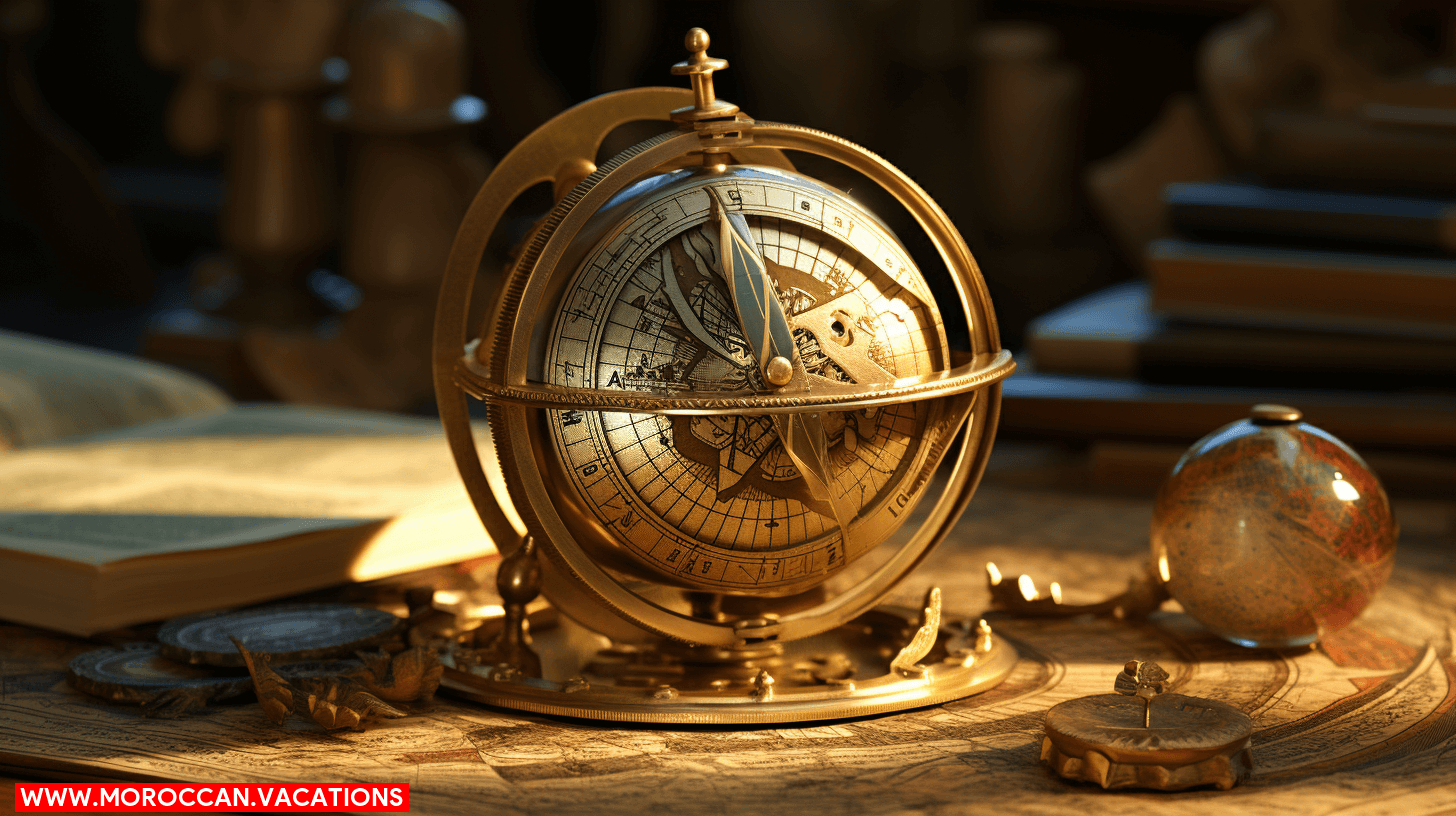

What is the current local time in Morocco?
To understand the current local time in Morocco, you’ll need to know that it operates on Western European Time (WET). This understanding of time zones is essential. Use time conversion tools to find the time difference with major cities or specific countries. The impact of daylight saving time, which Morocco observes, can’t be neglected. It affects not only solar time and timekeeping but also the correlation between weather and time. Morocco’s daylight saving time starts on the last Sunday of March and ends on the last Sunday of October. During this period, the time is advanced by 1 hour. So, always check the current local time before making any plans or scheduling any events. It’s your key to experiencing the freedom Morocco offers, without any time-related confusion.
What time zone is Morocco in?
Understanding the time zone of Morocco is your next step in grasping Moroccan time. Located in the Western European Time Zone, Morocco has a time conversion that is GMT+1. This means there’s a time difference to consider when comparing it to your local time. The impact of daylight saving time is also significant, since Morocco observes this change. However, it’s temporarily suspended during Ramadan. This affects the sunrise and sunset times, which can be crucial for planning your activities. Whether you’re exploring the largest cities or venturing off the beaten path, gathering weather information can also be valuable. Remember, understanding the Morocco time zone is not just about timekeeping, it’s about maximizing your freedom to enjoy and explore this vibrant country.
Is there daylight saving time in Morocco?
Indeed, you’ll find that daylight saving time plays a significant role in Moroccan timekeeping. The impact of daylight saving time on Morocco’s largest cities’ time zones is considerable. During this period, clocks are pushed forward by an hour, affecting time conversion methods and creating time zone differences with specific locations. So, while planning your journey, keep the daylight saving schedule in mind.
The weather and time in Morocco are closely linked. Daylight saving time helps maximize daylight during the longer days of summer, contributing to energy efficiency. It’s vital to consider the time difference, especially when contacting people in Morocco or coordinating travel schedules. By understanding these aspects, you can navigate the complexities of Moroccan time with ease and freedom.
What is the time difference between Morocco and my location?
Now, let’s delve into understanding the time difference between Morocco and your location. The process involves understanding time zones and calculating time differences. Time zone abbreviations, like GMT for Greenwich Mean Time and WET for Western Europe Time, can be useful for navigating global time differences. Comparing time zones between your location and Morocco is simplified using time conversion tools available online. You’ll need to consider the impact of daylight saving time, as this may affect the time difference. Morocco follows daylight saving time, which can sometimes cause confusion when comparing time zones. So, get a grip on this time game and set your watches right. Understanding Moroccan time gives you the freedom to schedule your affairs seamlessly, regardless of where you are in the world.
How to convert time to and from Morocco’s time zone?
To kick off with, you’ll need to grasp the basics of Morocco’s time zone to easily convert your local time to Moroccan time and vice versa. The key is understanding the time difference calculation. Here are three time zone conversion tips:
- Use Online Tools: Numerous time conversion tools are accessible online, offering instant results. Simply input your location and select Morocco as the target destination.
- Understand GMT: Morocco operates on Western European Time (WET, GMT+0) or Western Europe Summer Time (WEST, GMT+1). This knowledge is crucial for manual time zone calculations.
- Leverage Apps: Smartphone apps are excellent time conversion resources. They auto-update to reflect daylight saving adjustments, ensuring accurate conversions.
Exploring Time Zones and Daylight Saving Time
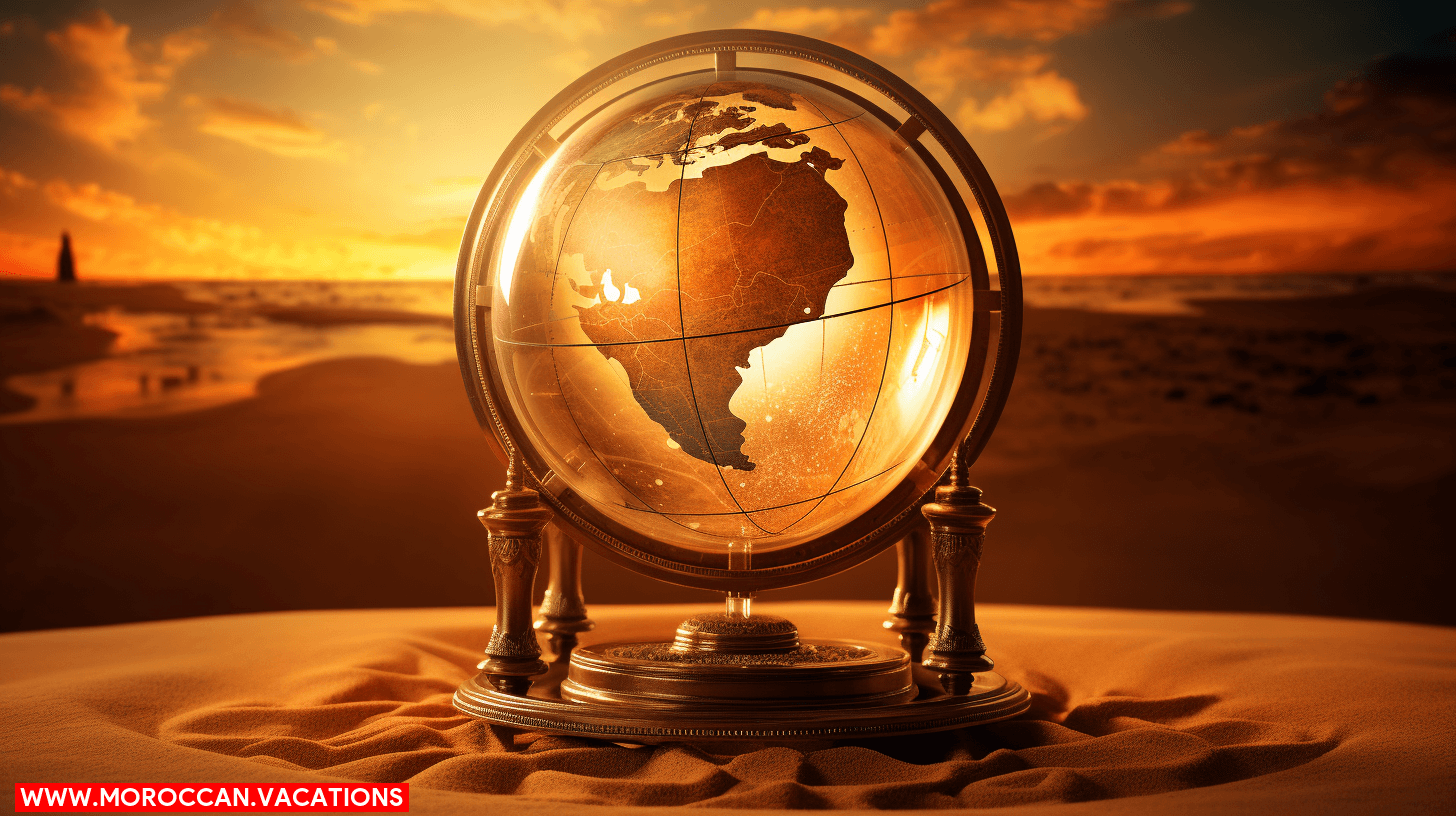

Let’s turn our attention to the time zones in Morocco and how daylight saving time impacts them. You might wonder about the major cities’ time zones and the schedule of daylight saving in this diverse country. You’ll also learn how to leverage various resources to determine the current time in Morocco, no matter where you are.
What are the different time zones in Morocco?
In your exploration of Moroccan time zones, you’ll find that the country operates on Western European Time (WET), but it’s not as simple as it seems. With time conversion in Morocco, it’s crucial to know Morocco’s time zone offset and the current local time in Morocco.
Let’s delve deeper into this:
- Morocco Time Zones: There’s just one – WET. However, Morocco adheres to Daylight Saving Time, advancing the clock by an hour in summer.
- Time Difference Calculator: To determine the time difference between your location and Morocco, use an online calculator.
- Daylight Saving Time in Morocco: Unlike other countries, Morocco suspends DST during Ramadan, reverting to standard time.
With this guide, you’re free to navigate Morocco’s time zone map with ease and confidence.
How does daylight saving time affect time in Morocco?
Understanding how daylight saving time affects Morocco’s clock-setting can significantly help you adjust your schedule when traveling or dealing with the country. The impact of DST on energy consumption is one of the economic benefits of DST, as it reduces the need for artificial light in the evening. However, the effects of DST on sleep patterns and how DST affects businesses can be disruptive, leading to cultural implications of changing time and political debates around DST.
Here’s a quick overview:
| Aspect | Positive Impact | Negative Impact |
| Energy Consumption | Lower | – |
| Businesses | – | Disruption |
| Sleep Patterns | – | Altered Sleep |
| Cultural Implications | – | Adjustment Required |
What are the largest cities in Morocco and their time zones?
Exploring the largest cities in Morocco and their respective time zones, you’ll discover how they align with or differ from the country’s standard time. This understanding of Moroccan time can help you navigate the time difference, especially when converting time during your travels.
- Casablanca is not only Morocco’s largest city but also its economic hub. The current local time aligns with Western European Time (WET, UTC +0).
- Fez, a UNESCO World Heritage Site, also follows WET.
- Marrakesh, known for its vibrant markets and historic palaces, too, is in the WET zone.
During daylight saving time, these cities move to Western European Summer Time (WEST, UTC +1), so remember to adjust your watches then for a seamless Moroccan adventure.
What is the daylight saving schedule in Morocco?
Morocco’s daylight saving schedule is something you’ll need to be aware of, as it can impact your time calculations during your visit. Understanding DST changes in Morocco is crucial, especially considering its history. Unlike many countries, Morocco has a unique DST schedule, often changing dates annually which can impact businesses.
The benefits of DST in Morocco include reduced energy consumption, but the challenges of implementing DST, like adjusting to the change, are also noteworthy. Comparatively, DST schedules vary greatly among countries, adding complexity to global time calculations. Still, the adoption of DST in Morocco, despite its challenges, reflects the country’s commitment to environmental sustainability and economic growth. So be prepared, your Moroccan adventure awaits!
How to use tools or resources to find the current time in Morocco?
So, how can you determine the current time in Morocco using various tools and resources? Let’s explore time conversion, timekeeping tools, and time zone conversion.
- Online Time Converters: You can use online tools like World Time Server or TimeAndDate for time difference calculation. These tools are user-friendly and provide accurate conversions between international time zones.
- Time Zone Maps: Use a time zone map to visualize the time difference between your current location and Morocco. This helps in comparing local times.
- Smartphone Applications: Apps like ‘World Clock’ provide the current time in Morocco instantly.
Weather and Other Time-Related Information
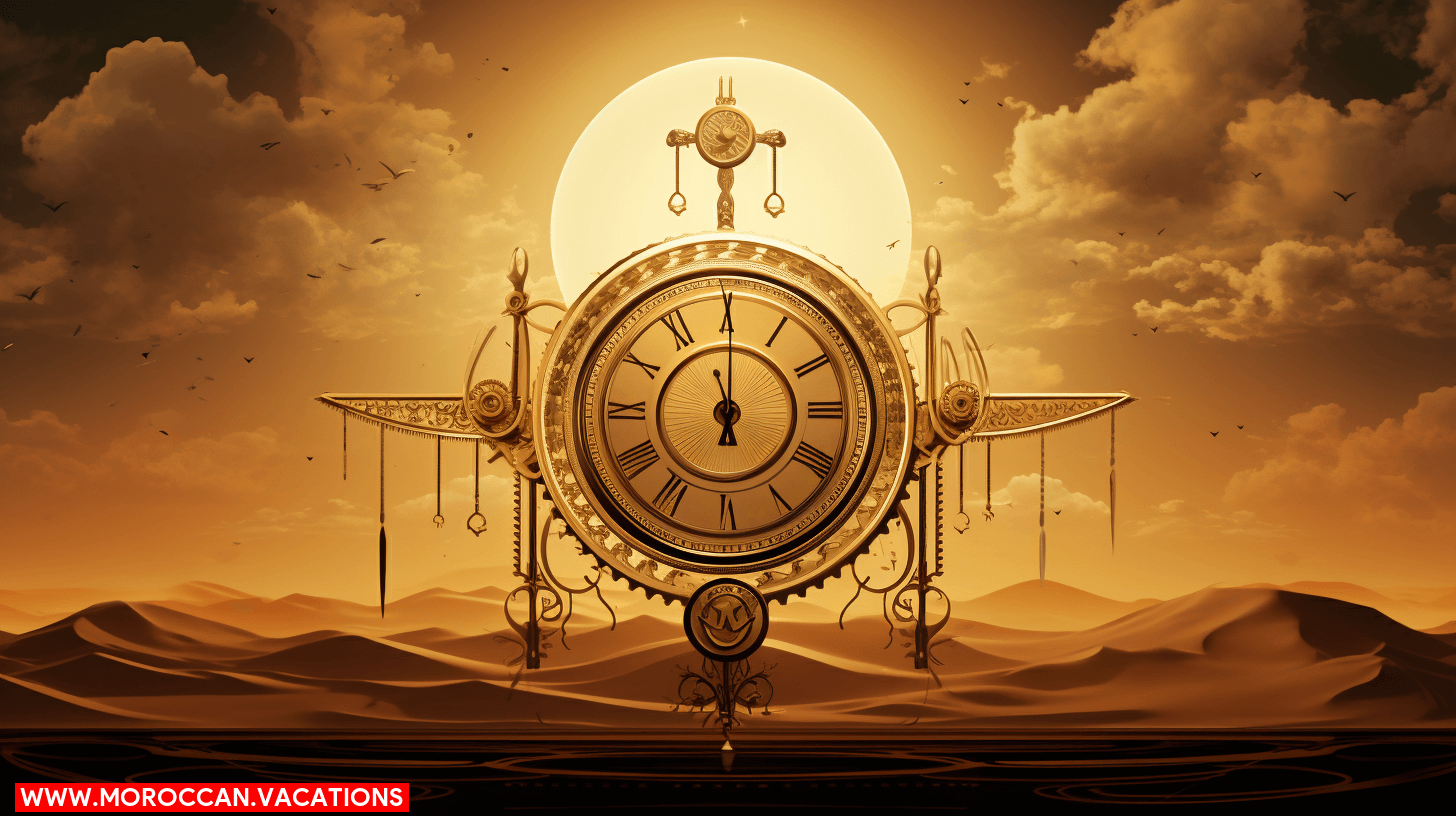

You might be wondering about the sunrise and sunset times in Morocco, or how long the days are during different times of the year. It’s also interesting to consider how solar time influences timekeeping in Morocco. Don’t worry, we’ll also guide you on where to find accurate information about the Moroccan weather and explain how to calculate time differences between Morocco and other specific locations.
What is the sunrise and sunset time in Morocco?
Planning your day in Morocco? It’s essential you’re aware of the sunrise and sunset times to maximize your experience. Here’s a breakdown:
- Sunrise and Sunset Times in Morocco: These vary throughout the year, but generally, you can expect sunrise between 6-7am and sunset between 6-7pm.
- Length of Daylight in Morocco: This typically ranges from 10 to 14 hours, depending on the season.
- Time Zones and Daylight Saving: Morocco operates on Western European Time (WET). They implement daylight saving time, so remember to adjust your clocks.
To find the current time in Morocco, use online tools/resources. Also, don’t forget to convert the time between Morocco’s time zone and your location to prevent confusion. With this information, you’re ready to seize the day in Morocco!
How long are the days in Morocco during different times of the year?
Curious about how long the days in Morocco are during different times of the year? Well, it’s time to delve into the details. The days’ length throughout the year in Morocco varies due to the impact of latitude on day length. In summer, you’ll enjoy longer days due to the tilt of the Earth’s axis, with sunrise and sunset times stretching the day to about 14 hours. Conversely, winter brings shorter days of around 10 hours. The effects of daylight saving time also influence day length, adding an extra hour of daylight in the evening. Moreover, variations in day length between different regions of Morocco exist, affected by factors like elevation and proximity to the coast. So, the seasonal changes in day length are quite noticeable, offering unique experiences throughout the year.
What role does solar time play in determining time in Morocco?
In understanding the role solar time plays in determining time in Morocco, it’s essential to recognize how it interacts with weather and other time-related aspects. Solar time importance is evident in the country’s dependence on sun-related activities, like farming, which are shaped by the country’s geography.
- Historical Timekeeping: Morocco’s timekeeping methods are rooted in their cultural significance, with traditional methods like sundials being influenced by solar time.
- Timekeeping Technology: Today, technology has improved time measurement accuracy, yet solar time still holds cultural and practical relevance.
- Impact of Geography: The geographical location of Morocco influences its weather and, in turn, the solar time. This combination molds the country’s timekeeping practices and contributes to their unique cultural identity.
Where can I find information on the weather in Morocco?
You can find detailed information on Morocco’s weather through various online meteorological services, which provide current conditions, forecasts, and climate data. These services allow you to stay updated with weather patterns and temperature variations, giving you the freedom to plan your activities accordingly.
Here’s a quick overview of what to expect:
| Season | Climate Conditions | Key Weather Changes |
| Winter | Mild and Wet | Frequent Rain |
| Spring | Mild and Dry | Rising Temperatures |
| Summer | Hot and Dry | Heatwaves |
| Autumn | Cooling Down | Decreased Rainfall |
It’s essential to regularly check weather updates, especially during seasonal changes. This way, you’ll be prepared for whatever the Moroccan weather throws at you. The country’s meteorological data is your guide to enjoying Morocco without weather-related surprises.
How to find the time difference between Morocco and specific cities or countries?
After getting a grasp on Morocco’s weather patterns, let’s now dive into figuring out the time difference between this North african country and your location. Your journey of understanding time differences can be simplified by following these steps:
- Use time conversion methods: These tools, available online, help you calculate the time difference between your location and Morocco.
- Time zone comparison: Understand the time zones of both places. Morocco follows Western European Time, which might be ahead or behind your location.
- Cultural perspectives on time: Moroccan timekeeping practices and time synchronization methods may differ from yours. Understanding these can aid in your time management strategies.
Introducing Ayoub Karbachi, a brilliant wordsmith and curator of the Moroccan Vacations website. Prepare to immerse yourself in mesmerizing narratives and extraordinary moments, as he unveils the allure of Morocco's captivating destinations like never before.
Related Articles
How Far Is Morocco From Spain: a Complete Travel Guide
Discover the complete travel guide: “How Far Is Morocco From Spain.” Uncover the distances, routes, and essential tips for a seamless journey between these two captivating destinations. Plan your adventure with expert insights on transportation, cultural experiences, and more. Start your Moroccan-Spanish exploration today!
What to Wear in Morocco: Essential Tips for Dressing in The Kingdom
Discover essential tips for dressing in the Kingdom with our comprehensive guide on what to wear in Morocco. Navigate cultural nuances effortlessly and make a statement with your attire.
Where Is Sahara Desert?
Discover the fascinating whereabouts of the Sahara Desert with our comprehensive guide. Uncover its unique geography, wildlife, and cultural significance.

